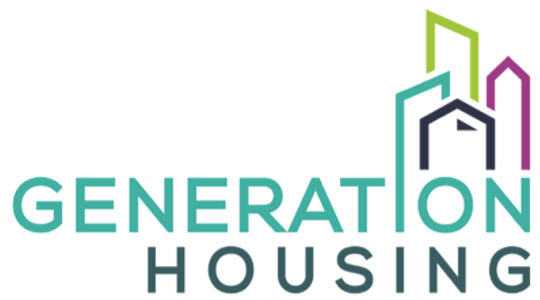Happy Pride! Every June, rainbows abound in Sonoma County, publicly declaring pride for being part of the Queer community, pride in allyship, and proudly celebrating and uplifting LGBTQIA+ voices. At Generation Housing, we are dedicated to advocating for more, more diverse, and more affordable housing, and because we do that with a commitment to equity, we pay close attention to the impacts of our housing system on traditionally marginalized populations, like the Queer community. So as we raise the flag of pride and celebration of progress made, we also maintain a clear-eyed view of the continued housing challenges faced by the Queer community, the impact of those challenges and a commitment to addressing those challenges.
It was just recently, in 2021, that federal protection from housing discrimination was granted to LGBTQ people by the U.S. Department of Housing and Urban Development (HUD) under the Fair Housing Act. Despite these advancements, numerous studies continue to reveal significant bias against LGBTQIA+ Americans in their search for housing.
This was a late, but welcome response to the known challenges that LGBTQIA+ face across the nation. Studies have shown that LGBTQIA+ individuals are more likely to experience housing instability and homelessness compared to their cisgender and heterosexual counterparts. One HUD study found that housing providers in multiple U.S. cities discriminated against gay men and transgender people by telling them about fewer available units than heterosexual men and cisgender individuals. Another study concluded that approximately 40% of youth experiencing homelessness identify as LGBTQIA+.
Unfortunately, demographic information about gender identity and sexual orientation was dropped from the 2020 Census due to political controversy, limiting our ability to fully understand and address these disparities. At Generation Housing, we recognize the critical importance of collecting such data to develop targeted policies and interventions that reduce housing instability and promote the overall well-being of LGBTQIA+ individuals. So when we embarked on our study on the impacts of housing cost burden locally, we specifically collected gender identity and sexual orientation demographics and worked hard to ensure we had a statistically representative sample size of respondents that identified other than cis-gender and/or heterosexual.
Some of the key findings relevant to our local LGBTQIA+ community in our report, Making the Rent: the Human Price of Housing Cost Burden, include the following impacts of housing cost burden:
- Nonbinary respondents reported having substantially higher rates of difficulty with affording essential healthcare services relative to those who identified as Male or Female.
- Queer respondents are twice as likely as non-Queer respondents to report difficulty with affording mental health services.
- Nonbinary respondents are at substantially higher risk of not being able to afford basic necessities such as prescription medications, over-the-counter medications, clothing, utilities, etc.
- By and large, Queer respondents face a greater challenge affording basic necessities relative to non-Queer respondents.
The alarming data collected both on a national and local level highlight the urgent need for comprehensive solutions to address housing disparities faced by the LGBTQIA+/Queer community across the country.
As we work towards a more equitable future, we must continue to advocate for comprehensive housing policies that address the specific needs and challenges faced by the LGBTQIA+ community. Doing that requires strong allyship. Together, let’s strive for a brighter future where everyone, regardless of their gender identity or sexual orientation, can find safe, affordable, and inclusive housing. We all are Gen H.
With pride & in unity,
The Gen H Team
